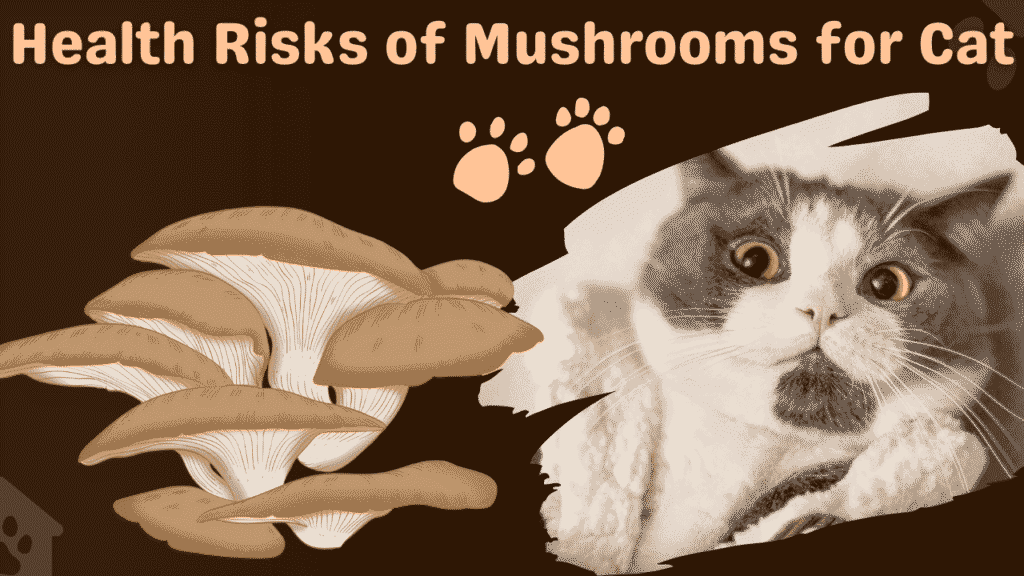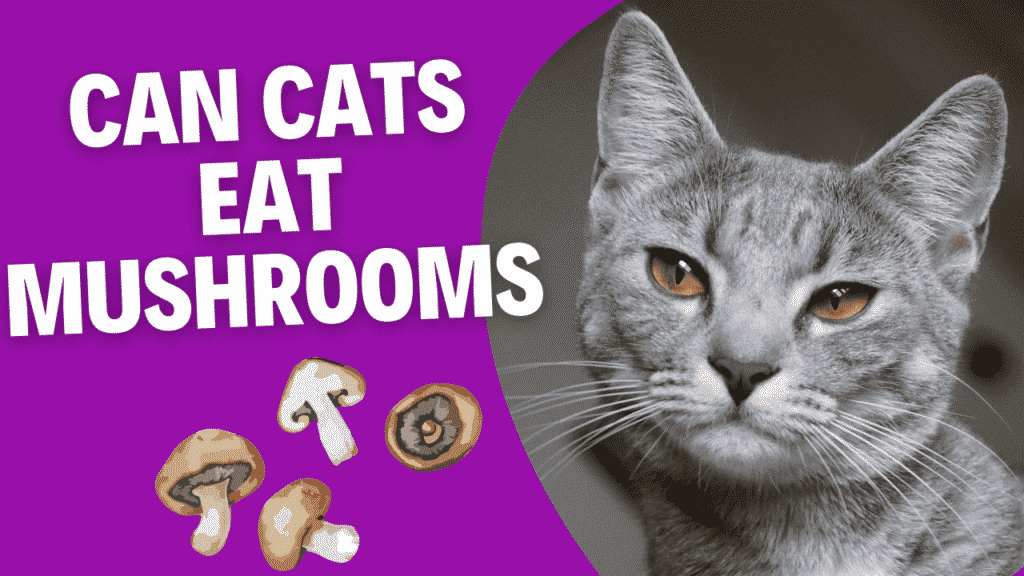Mushrooms are a staple in many human diets, known for their nutritional benefits and versatility in recipes. However, as pet owners, we must carefully consider whether this human food is safe for our feline companions. This article explores the important question: Are mushrooms safe for cats to eat? We’ll explore the potential benefits, risks, and guidelines to ensure your cat’s health and well-being.
Understanding a Cat’s Diet
Cats are obligate carnivores, meaning their primary nutritional requirements come from meat. Unlike omnivores or herbivores, their digestive systems are specially adapted to process animal proteins and fats. While cats can eat some non-meat items, their dietary needs are specific, and introducing new foods should always be approached with caution.
Are Mushrooms Safe for Cats?
The answer depends on the type of mushroom in question. Not all mushrooms are created equal. Some are harmless, while others are highly toxic. Let’s break this down:
Edible Store-Bought Mushrooms
Mushrooms such as button, shiitake, and portobello are typically considered safe for cats to consume in minimal quantities. These varieties are non-toxic and do not contain harmful compounds. However, there is little nutritional benefit for cats to consume them. If your cat is curious and tries a nibble of a cooked, unseasoned mushroom, it’s unlikely to cause harm.
Wild Mushrooms: A Significant Risk
Wild mushrooms pose a severe threat to cats. Many wild species contain toxins that can lead to serious health issues, including:
- Liver failure
- Kidney damage
- Neurological symptoms
- Digestive upset
Examples of toxic wild mushrooms include the Amanita species, such as the deadly Amanita phalloides (Death Cap) and Amanita muscaria (Fly Agaric). Even tiny quantities of these mushrooms can be deadly.
If you think your cat may have eaten a wild mushroom, reach out to your veterinarian without delay.
Health Risks of Mushrooms for Cats
While some mushrooms are safe, there are several risks to consider:

1. Gastrointestinal Distress
Even safe mushrooms can cause mild stomach upset in cats, especially if they are not accustomed to consuming them. Possible symptoms include nausea, loose stools, or a reduced appetite.
2. Toxic Reactions
Toxic mushrooms can cause a range of symptoms, such as:
- Drooling
- Tremors or seizures
- Jaundice (yellowing of the skin and eyes)
- Abnormal behavior, such as lethargy or aggression
3. Allergic Reactions
Cats, like humans, can have unique allergies. A cat may develop an allergic reaction to mushrooms, leading to symptoms such as itching, swelling, or respiratory distress.
Can Mushrooms Benefit Cats?
Although mushrooms contain nutrients like potassium, selenium, and antioxidants, these are not essential for a cat’s diet. Cats receive all the necessary nutrients from their meat-based diets, supplemented by specially formulated cat foods. Adding mushrooms to their meals does not provide significant health benefits.
Guidelines for Feeding Mushrooms to Cats
if you deside to offer mushrooms to your cat, ensure you follow these crucial precautions.

1. Stick to Store-Bought Mushrooms
Ensure the mushrooms are fresh, edible varieties that are safe for human consumption.
2. Cook Without Seasonings
Never serve mushrooms with garlic, onions, salt, or spices, as these can be toxic to cats.
3. Offer in Moderation
Provide only a small, cooked piece as an occasional treat. Overfeeding mushrooms can disrupt your cat’s digestive system.
4. Monitor for Reactions
Monitor your cat closely after feeding for any negative reactions, including nausea, digestive upset, or unusual behavior changes.
Steps to Take if Your Cat Consumes a Wild Mushroom
Accidental ingestion of wild mushrooms is a veterinary emergency. Take the following steps immediately:
- Identify the Mushroom
If you can, collect a sample or snap a photo of the mushroom to assist your veterinarian in assessing its toxicity. - Contact Your Veterinarian
Contact your veterinarian or an animal poison control hotline for advice. - Do Not Induce Vomiting
Avoid attempting to induce vomiting unless specifically instructed by a professional, as it may cause more harm. - Seek Emergency Care
Time is critical when dealing with mushroom poisoning. Prompt treatment can save your cat’s life.
Preventing Mushroom Poisoning in Cats
To protect your cat, follow these preventative measures:
- Inspect Your Yard: Regularly remove any mushrooms growing in your yard or garden.
- Supervise Outdoor Time: Keep an eye on your cat when they explore outside, especially in wooded or damp areas where mushrooms thrive.
- Educate Yourself: Learn to recognize common toxic mushroom species in your region.
Conclusion
So, can cats eat mushrooms? While certain store-bought varieties are safe in moderation, the risks often outweigh the benefits. Wild mushrooms are particularly dangerous and should be avoided at all costs. As responsible pet owners, we must prioritize our cats’ safety and well-being by carefully considering what foods we offer them.if you’re unsure , seek advice from your veterinarian before adding any new foods to your cat’s deit.
# : if you want to more information of this topic click here see more
# : READ ANOTHER POSTS
1 : Can Cats Eat French Fries? A Comprehensive Guide for Pet Owners
2 : Can Cats Eat Raw Beef? Everything You Need to Know
3 : Can Cats Eat Donuts? A Guide to Feline Nutrition and Health Risks
4 : Will Cats Kill Chickens? Understanding the Risks and How to Protect Your Flock


